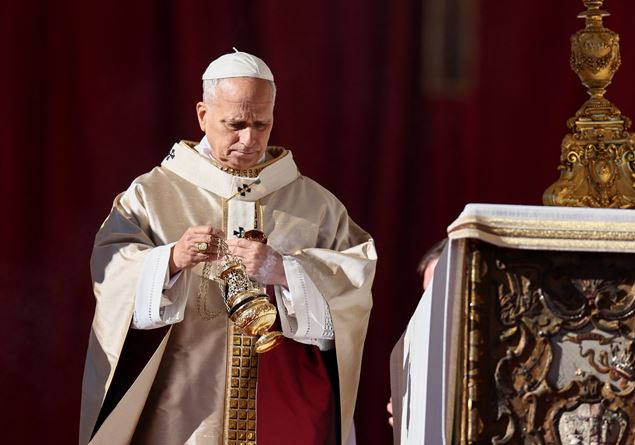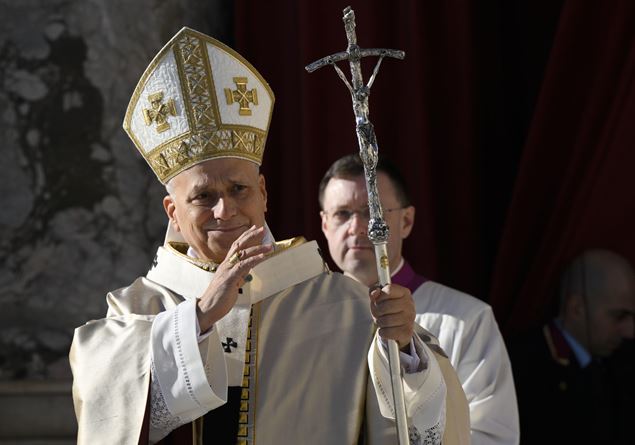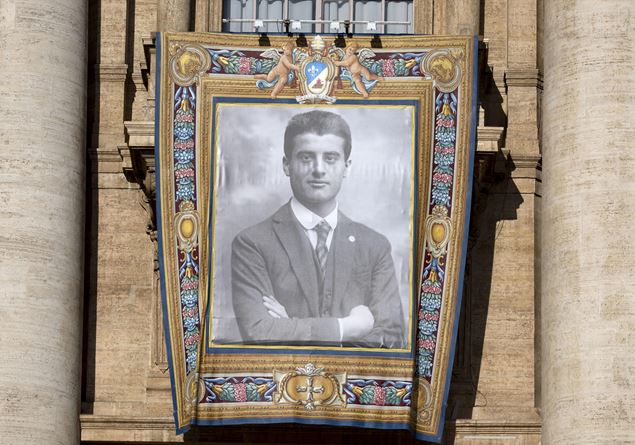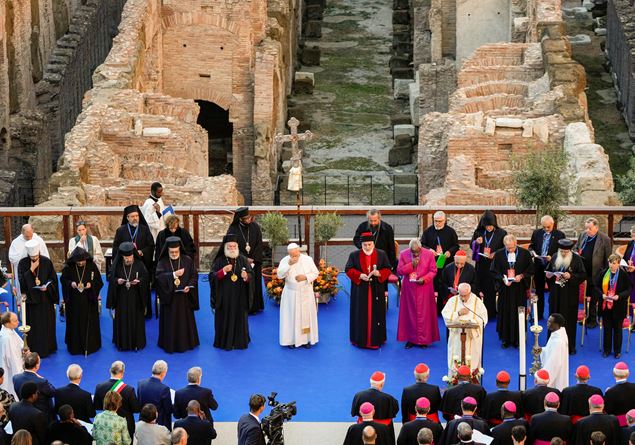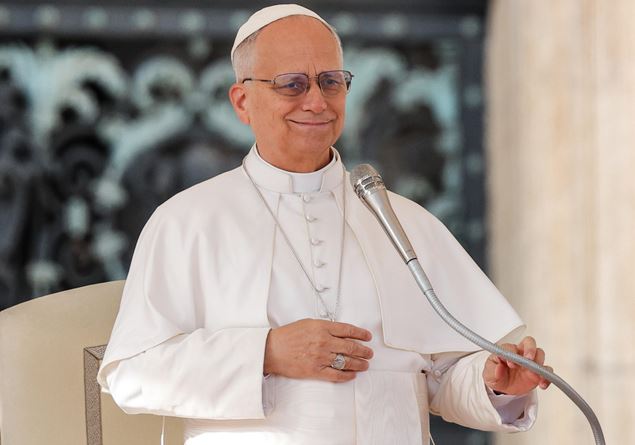A message of reconciliation after everyone prayed in distinct places according to different religious traditions. Pope Leo concludes the international meeting for peace promoted by the community of Sant’Egidio which, since the first meeting in Assisi called for by John Paul II in 1986, continues to fuel dialogue and use “words because we are children of the Word and we do not give in to war”, explained president Marco Impagliazzo.
Leo, at the arch of Constantine, recalls that «conflicts are present wherever there is life, but it is not war that helps to face them, nor to resolve them. Peace is a permanent path of reconciliation.” He thanks the religious leaders who came to «pray for peace, showing the world how decisive prayer is. The human heart must in fact prepare itself for peace and in meditation it opens up, in prayer it comes out of itself. Returning to yourself to get out of yourself. We bear witness to this by offering contemporary humanity the immense treasures of ancient spiritualities.”
The Pontiff recalls that the world «thirsts for peace: it needs a true and solid era of reconciliation, which puts an end to prevarication, the display of force and indifference to the law. No more wars, with their painful heaps of deaths, destruction, exiles! Today, together, we demonstrate not only our firm desire for peace, but also the awareness that prayer is a great force for reconciliation. Those who do not pray abuse religion, even to kill.”
He asks that “places of prayer be tents of encounter, sanctuaries of reconciliation, oases of peace”. And go back to the meeting of 27 October 1986 when John Paul II « invited the religious leaders of the world to Assisi to pray for peace: never again against each other, but alongside each other. It was a historical moment, a turning point in relations between religions. In the “spirit of Assisi”, year after year, these meetings of prayer and dialogue continued, which created a climate of friendship between religious leaders and welcomed many requests for peace”.
And even if the world seems to have gone in the opposite direction, we are not resigned to wars and violence. Indeed, we must start again “from Assisi, from that awareness of our common task, from that responsibility for peace”.
Leone’s speech was interrupted several times by applause. When he remembers the 60 years of Nostra Aetate which reaffirms the commitment to dialogue and brotherhood. Religions are sisters and «must encourage people to treat each other as brothers, not as enemies. Because “the various peoples in fact constitute a single community. They have a single origin”.
No more wars, the Pope repeats. «We must distance religions from the temptation to become an instrument for fueling nationalism, ethnicism and populism. Wars are getting worse. Woe to those who try to drag God into taking part in wars!” he says, quoting Francis. And, while making his predecessor’s words his own, he repeats “forcefully: war is never holy, only peace is holy, because it is willed by God!”.
I applaud again when he hopes that «this season of history marked by war and the arrogance of force will soon end and a new history will begin. We cannot accept that this season will continue any longer, that it will shape the mentality of peoples, that we will become accustomed to war as a normal companion of human history.” He repeats the word “Enough!” several times. This is “the cry of the poor and the cry of the earth. Enough! Lord, hear our cry! And he takes up the words that Giorgio La Pira, «witness of peace, while working politically in difficult times, wrote to Saint Paul VI: we need “a different history of the world: ‘the history of the age of negotiation’, the history of a new world without war”. These are words that today more than ever can be a program for humanity.”
He insists on the “culture of reconciliation” which “will overcome the current globalization of impotence, which seems to tell us that another history is impossible. Yes, dialogue, negotiation and cooperation can address and resolve the tensions that arise in conflict situations. They have to do it! There are the places and the people to do it.” And, finally, he reiterates that «putting an end to war is the unpostponable duty of all political leaders before God. Peace is the priority of every policy. God will call to account those who did not seek peace or who fomented tensions and conflicts, throughout the days, months and years of war.”
And the appeal he relaunches, becoming the voice of those who have no voice, and addressed to the rulers is to “dare for peace”. And «if the world were deaf to this appeal, we are certain that God will listen to our prayer and the lament of many suffering. Because God wants a world without war. He will deliver us from this evil!
